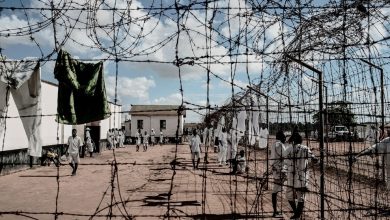Mob justice leadership
On July 5 1965, some four Malawians hiked to Sapitwa, the highest point in this part of Africa, some 3002 metres above sea level. The plan was to plant the Malawi flag at midnight as the country attained independence from the British colonialists. Elsewhere, the Union Jack was lowered.
Now, that effort by the four gallant souls, for me, signifies the hope each and every native had, that independence was a trek into the land of milk and honey.
For those who have been to Sapitwa, that summit freezes in July. And to imagine four people on that rooftop of Malawi demonstrates the hope and optimism Malawians had at the dawn of independence. The expectations were so high among Malawians.
It is 59 years since the flywhisk Dr Hastings Kamuzu Banda started telling us that his people lived in houses that did not leak when it rained. Not only that, he used to boast that he brought his people freedom and gave them food, while at the same time clothing the people he found literally naked in Mwanza and Neno.
Much as his rule was determined with peace and calm, law and order enforced by heavy handed adherence to unity, loyalty, obedience and discipline, we had in our hands a despot who would boast about feeding his enemies to the crocodiles that were forever hungry at night.
Then came Bakili Muluzi, Atcheya. With him came freedom but not so free primary school education. In his bag came a privatization that marked the death of many thriving companies. But, the love he attained on the ground rooted from his being a man of the people. He knew what made them laugh and that was it.
What would one think of a President from Kapoloma, who studied at Mpilisi Primary School, among others and would done ‘zonke’ shoes that were polished with chalk? Down-to-earth leadership was his cup of tea as he championed poverty alleviation which, unfortunately ended up being poverty elevation.
Corruption became a catchword during his rule, as some may have misconstrued his anyamata a pa town locution. He even became an epitome to corruption, as evidenced by a case that ran for over 17 years, with no end.
Then, Atcheya brought us Bingu wa Mutharika. Never mind that Bingu got less votes than Kamlepo Kalua in the general elections in 1994, but he was handpicked when Atcheya’s third and open term bids hit a snag.
Although many thought he would be Atcheya’s blue-eyed boy, Bingu, Mose wa Lero, attained a reputation of being a deep thinker with a wide and wild vision. The country saw an economy that was ticking, where developmental projects were evident. Seeing that the works of his hands were speaking for him, Malawians gave him 62.5 percent of the vote that gave him a second term. No Malawi leader has single-handedly won by such a margin.
But then, absolute power tends to corrupt absolutely, so power got to his head that he could not hearken to the Malawians’ cries that things were going haywire.
The climax of it was on July 20 2011 when Malawians took to the streets against his rule. About 20 Malawians were killed in what ignited his downward trail that ended when he died after a cardiac arrest in 2012.
Can we talk of his successor Joyce Banda who was the second African female president? Well, her rule was a mumbo-jumbo that saw improvements in power and energy supplies but was tainted by the infamous cashgate scandal?
Then came Peter Mutharika. His rule picked up from where his brother Bingu left off. Here was a leader who was apparently guided by a nepostic tendency and took so much time to react to the problems the country was facing.
And the joke we have been presented with lately is that the Democratic Progressive Party national governing council has resolved that Mutharika should return at the helm come 2025.
Now, President Lazarus Chakwera is at the helm. He is yet to convince some of us he will ever live his talk. The economy is in a shambles, the levels of executive fraud and corruption are at all time high, the cost of living is running mad and his campaign promises are all the opposite of what he is doing.
Why do we go all this way? It is apparent, very clear, that the independence some fought and died for prior to 1964 has borne little or no fruit at all. We have been doomed by mob justice leadership through and through.


